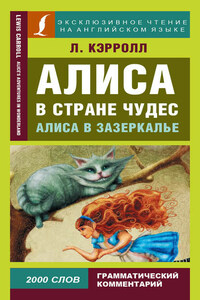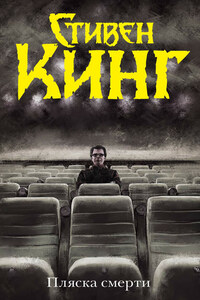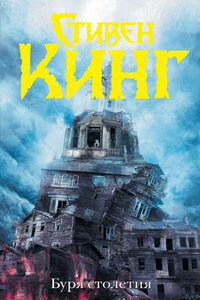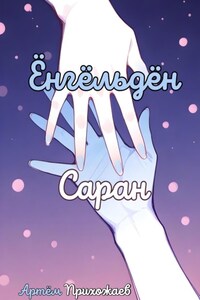This happened in 1932, when the state penitentiary was still at Cold Mountain[1]. And the electric chair was there, too, of course.
The inmates made jokes about the chair, the way people always make jokes about things that frighten them but can’t be gotten away from. They called it Old Sparky, or the Big Juicy. They made cracks about the power bill, and how Warden Moores[2] would cook his Thanksgiving dinner that fall, with his wife, Melinda, too sick to cook.
But for the ones who actually had to sit down in that chair, the humor went out of the situation in a hurry. I presided over seventy-eight executions during my time at Cold Mountain (that’s one figure I’ve never been confused about; I’ll remember it on my deathbed), and I think that, for most of those men, the truth of what was happening to them finally hit all the way home when their ankles were being clamped to the stout oak of “Old Sparky’ ” legs. The realization came then (you would see it rising in their eyes, a kind of cold dismay) that their own legs had finished their careers. The blood still ran in them, the muscles were still strong, but they were finished, all the same; they were never going to walk another country mile or dance with a girl at a barn-raising. Old Sparky’s clients came to a knowledge of their deaths from the ankles up. There was a black silk bag that went over their heads after they had finished their rambling and mostly disjointed last remarks. It was supposed to be for them, but I always thought: it was really for us, to keep us from seeing the awful tide of dismay in their eyes as they realized they were going to die with their knees bent.
There was no death row at Cold Mountain, only E Block, set apart from the other four and about a quarter their size, brick instead of wood, with a horrible bare metal roof that glared in the summer sun like a delirious eyeball. Six cells inside, three on each side of a wide center aisle, each almost twice as big as the cells in the other four blocks. Singles, too. Great accommodations for a prison (especially in the thirties), but the inmates would have traded for cells in any of the other four. Believe me, they would have traded.
There was never a time during my years as block superintendent when all six cells were occupied at one time—thank God for small favors. Four was the most, mixed black and white (at Cold Mountain, there was no segregation among the walking dead), and that was a little piece of hell. One was a woman, Beverly McCall[3]. She was black as the ace of spades and as beautiful as the sin you never had nerve enough to commit. She put up with six years of her husband beating her, but wouldn’t put up with his creeping around for a single day. On the evening after she found out he was cheating, she stood waiting for the unfortunate Lester McCall[4], known to his pals (and, presumably, to his extremely short-term mistress) as Cutter, at the top of the stairs leading to the apartment over his barber shop. She waited until he got his overcoat half off, then dropped his cheating guts onto his two-tone shoes. Used one of Cutter’s own razors to do it. Two nights before she was due to sit in Old Sparky, she called me to her cell and said she had been visited by her African spirit-father in a dream. He told her to discard her slave-name and to die under her free name, Matuomi. That was her request, that her death warrant should be read under the name of Beverly Matuomi. I guess her spirit-father didn’t give her any first name, or one she could make out, anyhow. I said yes, okay, fine. One thing those years serving as the bull-goose screw taught me was never to refuse the condemned unless I absolutely had to. In the case of Beverly Matuomi, it made no difference anyway. The governor called the next day around three in the afternoon, commuting her sentence to life in the Grassy Valley Penal Facility for Women-all penal and no penis, we used to say back then. I was glad to see Bev’s round ass going left instead of right when she got to the duty desk, let me tell you.
Thirty-five years or so later—had to be at least thirty-five—I saw that name on the obituary page of the paper, under a picture of a skinny-faced black lady with a cloud of white hair and glasses with rhinestones at the corners. It was Beverly. She’d spent the last ten years of her life a free woman, the obituary said, and had rescued the small-town library of Raines Falls pretty much single-handed. She had also taught Sunday school and had been much loved in that little backwater. LIBRARIAN DIES OF HEART FAILURE, the headline said, and below that, in smaller type, almost as an afterthought: Served Over Two Decades in Prison for Murder. Only the eyes, wide and blazing behind the glasses with the rhinestones at the corners, were the same. They were the eyes of a woman who even at seventy-whatever would not hesitate to pluck a safety razor from its blue jar of disinfectant, if the urge seemed pressing. You know murderers, even if they finish up as old lady librarians in dozey little towns. At least you do if you’ve spent as much time minding murderers as I did. There was only one time I ever had a question about the nature of my job. That, I reckon, is why I’m writing this.
















